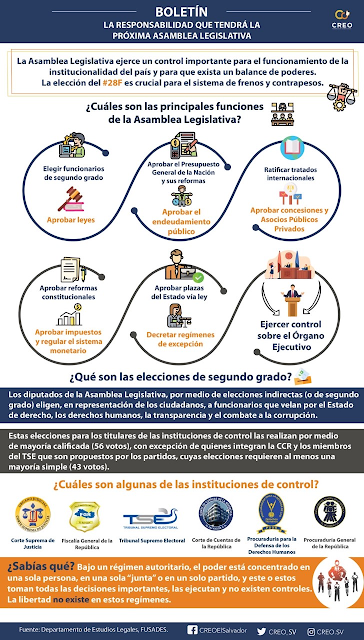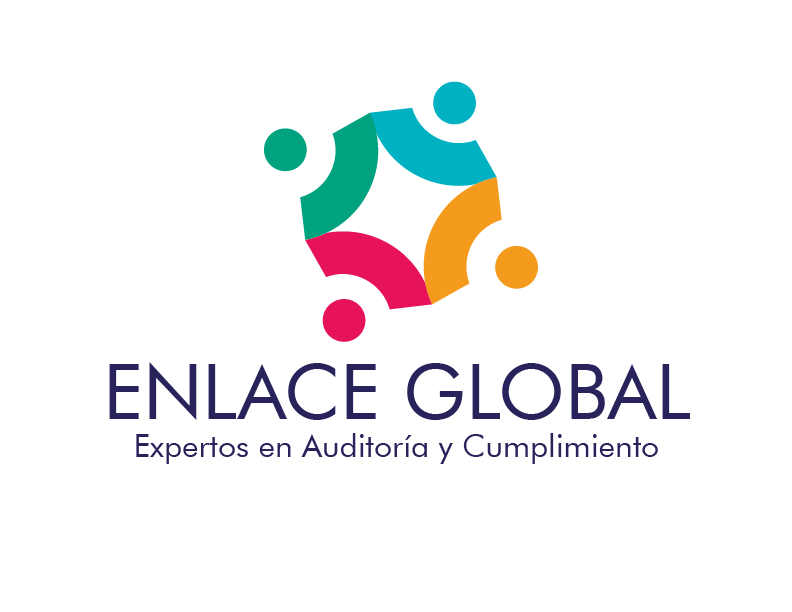sábado, 27 de febrero de 2021
44 Desde The Chronicle of Higher Education
YOUR PEOPLE ARE STILL YOUR GREATEST ASSET.
Responsible for creating and sustaining your institutional culture, understand how issues such as remote work, physical safety and change management are being perceived by your faculty and staff.
viernes, 26 de febrero de 2021
4 Desde HBR
| Today’s Tip |
| Leave Time for Small Talk in Your Virtual Meetings |
Virtual meetings have presented a slew of challenges for managers. The loss of small talk when you enter or leave a room may not have been at the top of that list, but these unstructured conversations help promote strong bonds between team members, and their absence can be corrosive. Here are three easy ways to bring friendly banter into your virtual meetings:
|
| This tip is adapted from “Make Time for Small Talk in Your Virtual Meetings,” by Bob Frisch and Cary Greene |
6 Desde FUSADES
| |||||
| |||||
|
jueves, 25 de febrero de 2021
3 Desde Alerta de la Fundación IFRS
| Due Process Oversight Committee March 2021 meeting papers available |
| Third Agenda Consultation Due Process Oversight Committee The Trustees of the IFRS Foundation |
| Emerging Economies Group 30 November-1 December 2020 meeting report posted |
| Disclosure Initiative—Accounting Policies Disclosure Initiative—Subsidiaries that are SMEs Disclosure Initiative—Targeted Standards-level Review of Disclosures Lack of Exchangeability (Amendments to IAS 21) Goodwill and Impairment Post-implementation Review of IFRS 10, IFRS 11 and IFRS 12 Emerging Economies Group |
4 Desde HBR
| Today’s Tip |
| Reframe a Gap on Your Resume |
| A gap on your resume doesn’t have to be an obstacle to overcome. You can reframe a break from traditional employment as a valuable learning experience. Start by challenging your assumption that employers only value the skills you developed in paid positions. In fact, they often look for applicants who can demonstrate their ability to problem solve and get things done. You can showcase these skills whether or not they are tied to a long-term, 9-to-5 job. Write down everything you’ve spent time on in between jobs: Maybe you took part in a startup competition during school or helped a friend create a social media campaign for their new Etsy store. Then, ask yourself, “Have I gained any skills that align with the requirements for the job I'm applying for?” You might think that a project has nothing to do with your job search, but if framed right, it could actually add a great deal to your resume. Ultimately, if you’re confident in the value that you can bring to others, your dynamic experience will be seen as the asset that it is. |
| This tip is adapted from “How to Fill an Employment Gap on Your Resume,” by Vadim Revzin and Sergei Revzin |
miércoles, 24 de febrero de 2021
17 Desde McKinsey & Company
|
|
| |||
|
44 Desde The Chronicle of Higher Education
Views |
IN CASE YOU MISSED IT The Concrete Benefits of a Virtual Conference By Leonard Cassuto  Yes, academics miss our in-person scholarly meetups. But the online version of the annual MLA convention had its own virtues. |
4 Desde HBR
| Today’s Tip |
| How to Ask Your Boss for an Extended Leave |
| You may find yourself needing an extended leave from work at some point in your career, whether it’s to care for a sick family member, to go back to school, or for another personal reason. But asking your boss for the time off can be daunting. Here's how to approach the conversation. First, emphasize your commitment. Express your desire to remain with the organization, and be clear about the temporary nature of your ask. Give enough information regarding your situation so that they understand your needs, but don’t feel like you have to share anything that might make you uncomfortable. Come up with a communication plan with your manager. What are you going to tell your coworkers, and what are you going to keep between the two of you? And make sure to set clear expectations and boundaries with your boss and your team around your capacity to work during your leave. Everyone is subject to a major life event that could disrupt our ability to work for a while. Be equipped to handle that possibility should it arise. |
| This tip is adapted from “How to Ask for an Extended Leave from Work,” by Denise M. Rousseau |
martes, 23 de febrero de 2021
23 Desde Observatorio ITESM
El proceso de admisión a la universidad en tiempos de COVID-19
Paulette Delgado
El futuro de millones de estudiantes se vuelve incierto mientras universidades y gobiernos alrededor del mundo analizan cómo continuar el proceso de admisión durante la pandemia.
LEER MÁS+
51 Desde OM Enlace Global
|
|
|
|
4 Desde HBR
| Today’s Tip |
| Talk to Your Boss About Burnout |
| If you’re feeling symptoms of burnout, such as anxiety, exhaustion, or hopelessness, it’s important that you take them seriously. You must accept that you need some help — and that that's okay. Admitting this may be a struggle, especially if you're a high achiever who prides yourself on pushing through adversity. You may worry that your boss will think less of you if you acknowledge your limitations, but they’re in the best position to help and will likely respect your honesty. When you talk to them, be specific about the symptoms you’re experiencing. You might say, “I’m feeling overwhelmed by the volume of projects on my plate,” or “I’m feeling really anxious about meeting all of these deadlines." In all likelihood, your stress has probably been visible to your colleagues, so be sure to acknowledge that. A simple statement like, “Look, I know I haven’t been myself lately, and I’m sorry if that’s had a negative impact on you or the team,” can go a long way. Finally, make it clear that you’re asking for help and want to be part of the solution. It may be hard to approach your boss about feeling burned out, but you need to take care of your mental and physical well-being — and give others a chance to offer some help. |
| This tip is adapted from “How to Tell Your Boss You’re Burned Out,” by Ron Carucci |
10 Desde IFAC
|























